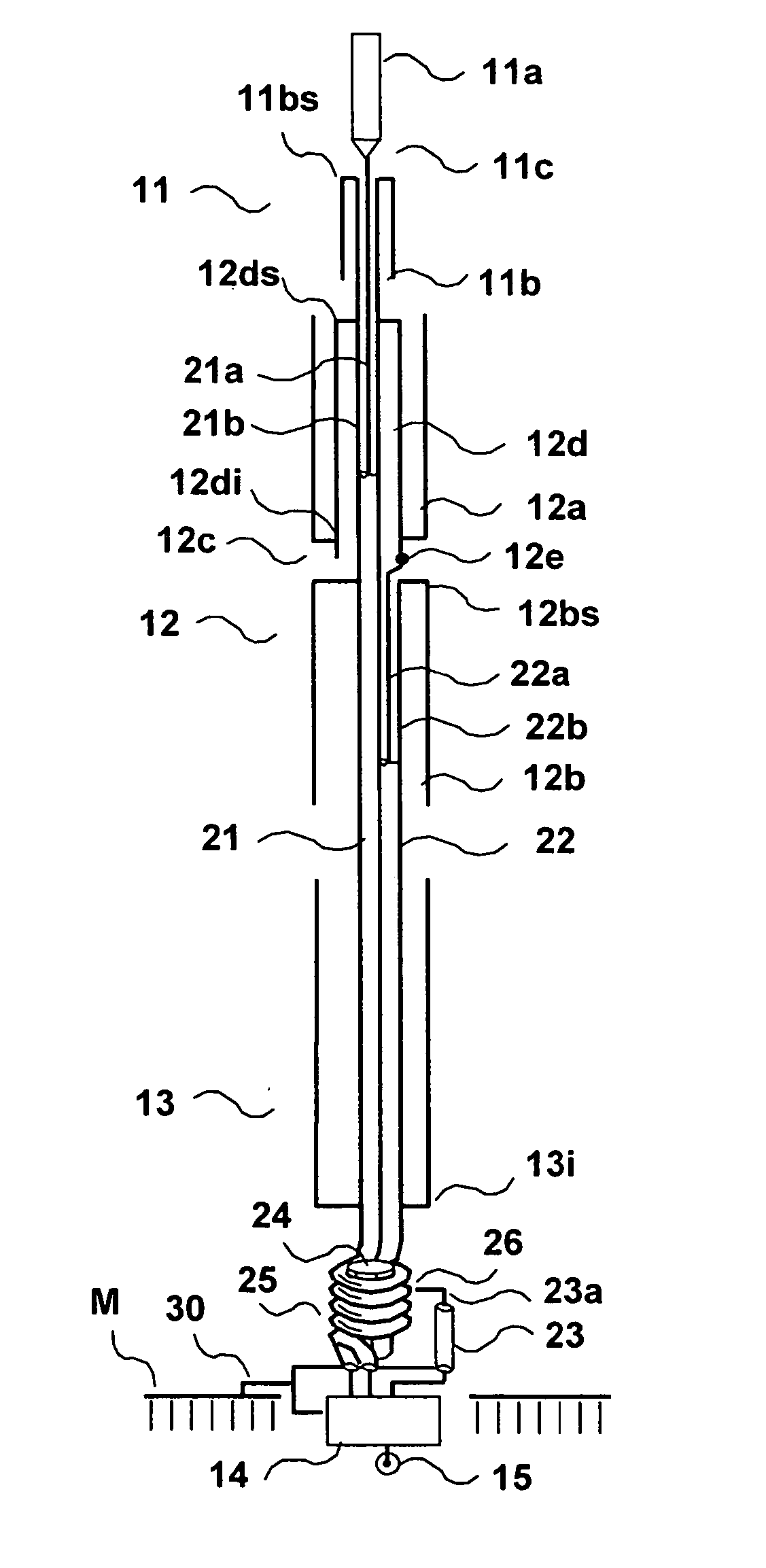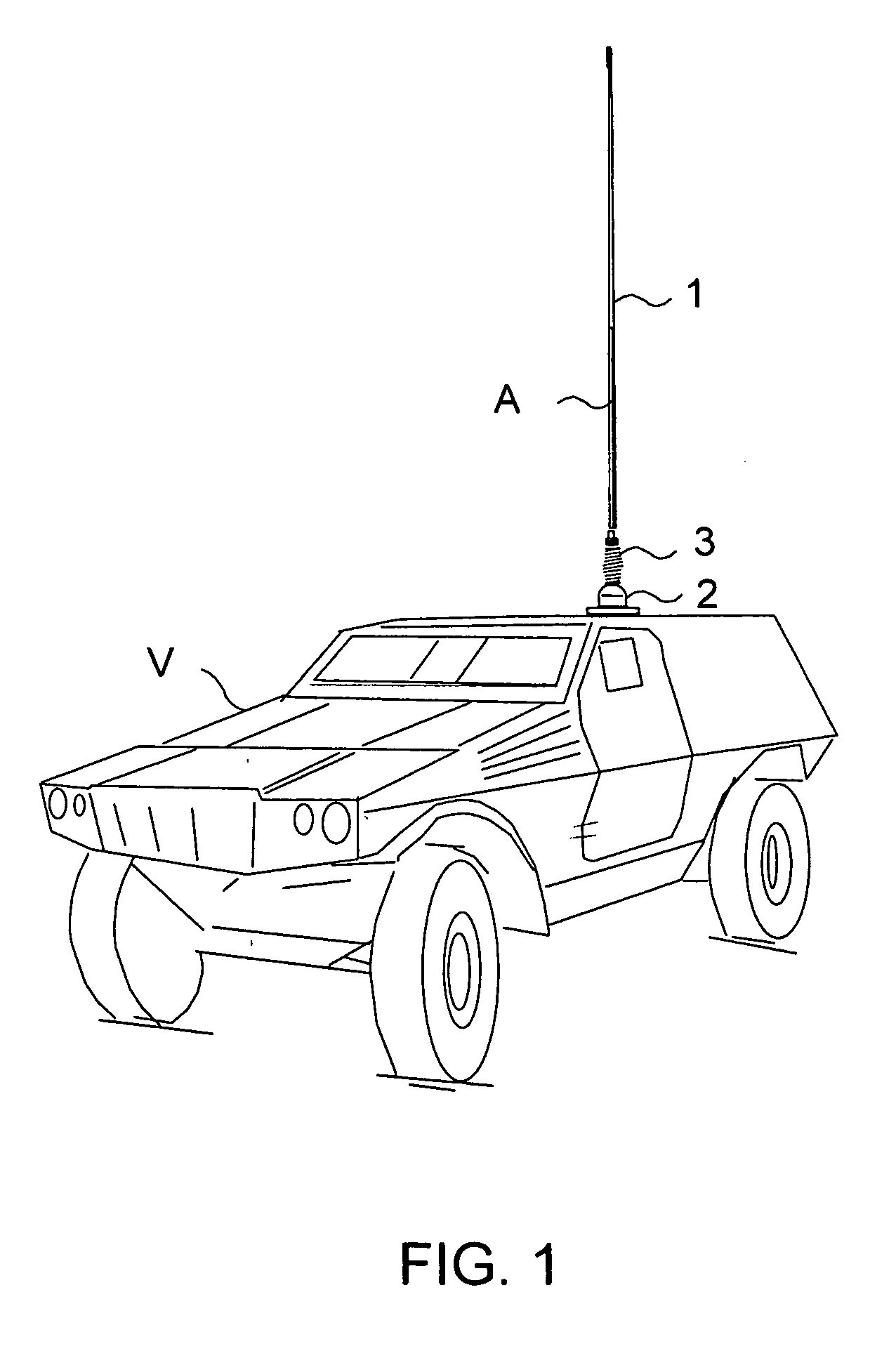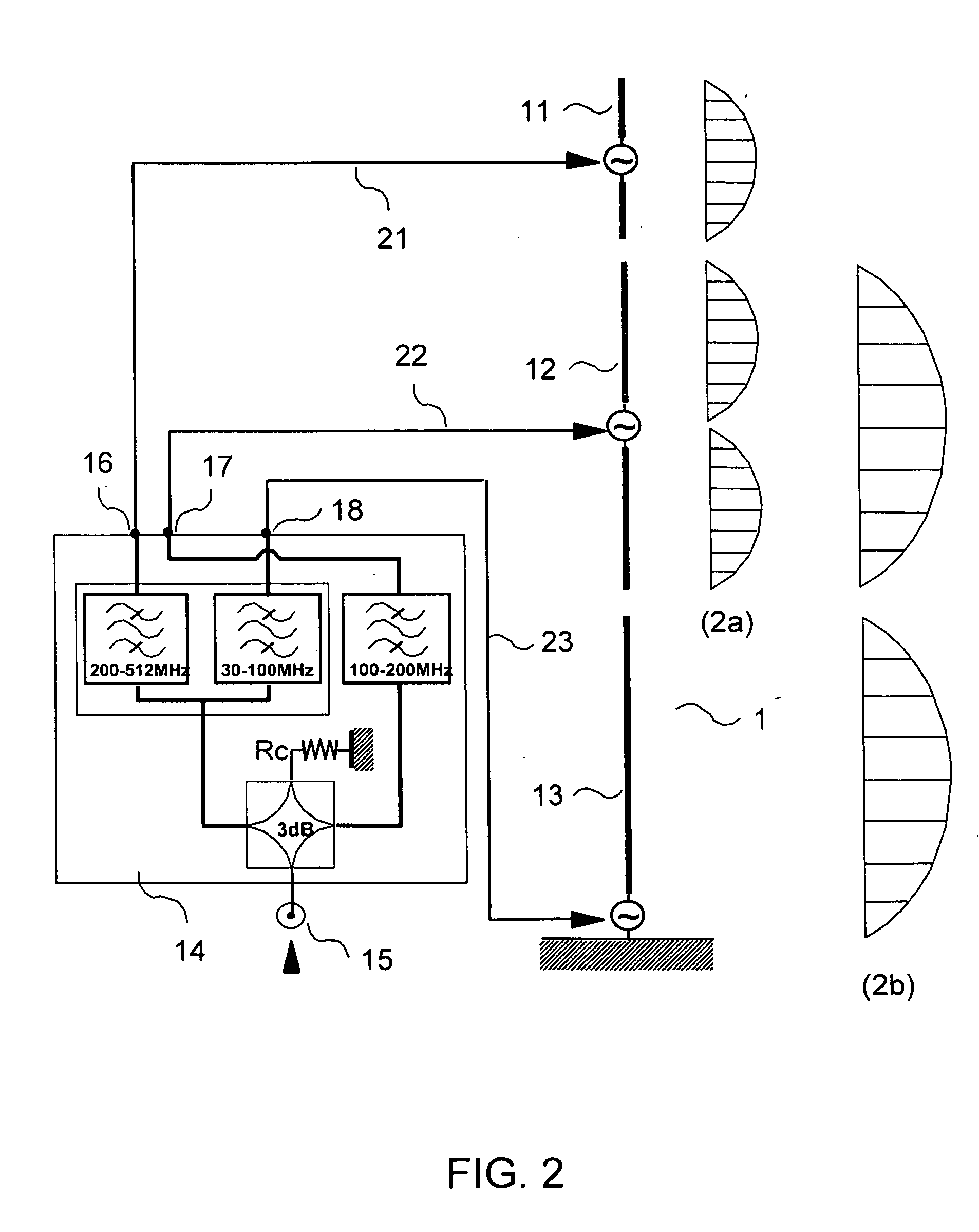Ultra-wideband V-UHF antenna
a wideband, antenna technology, applied in the direction of antennas, antenna feed intermediates, electrical devices, etc., can solve the problems of incompatibility of space requirements with vehicle dimensions, inability to meet the radio range required for ground-ground links, and inability to use land-based moving objects. achieve the effect of efficiency and gain
- Summary
- Abstract
- Description
- Claims
- Application Information
AI Technical Summary
Benefits of technology
Problems solved by technology
Method used
Image
Examples
Embodiment Construction
[0022]FIG. 1 exemplifies an antenna A installed in the vehicle V. This antenna is constituted for example by a radiating element 1 which takes the form of a whip and a base 2 used to fix the antenna to the carrier vehicle and usually comprising a power supply network to enable the maximum transfer of power from the transmitter / receiver to the radiating unit 1. In order to protect the antenna from accidental impact with obstacles, a flexible element 3 is interposed at its base. This flexible element, which is known to those skilled in the art, shall not be described in detail for the sake of simplification.
[0023]FIG. 2 shows a block diagram and the principle of operation of an antenna according to the invention, working in the 30 to 512 MHz band. The values of this band are given by way of illustration and in no way restrict the scope of the invention.
[0024] The antenna A comprises for example: [0025] a radiating assembly 1 constituted by two collinear dipoles 11 and 12 and one mon...
PUM
 Login to View More
Login to View More Abstract
Description
Claims
Application Information
 Login to View More
Login to View More - Generate Ideas
- Intellectual Property
- Life Sciences
- Materials
- Tech Scout
- Unparalleled Data Quality
- Higher Quality Content
- 60% Fewer Hallucinations
Browse by: Latest US Patents, China's latest patents, Technical Efficacy Thesaurus, Application Domain, Technology Topic, Popular Technical Reports.
© 2025 PatSnap. All rights reserved.Legal|Privacy policy|Modern Slavery Act Transparency Statement|Sitemap|About US| Contact US: help@patsnap.com



